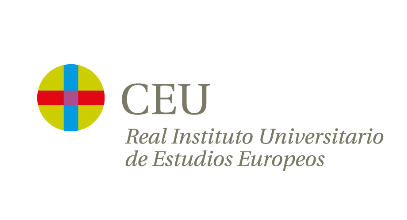-Allan F. Tatham-
Every day, we receive reports and pictures directly into our homes about the effects of conflicts and natural disasters throughout the world. Poignant images of victims and devastation flash on our screens or appear in our newspapers and magazines. The impacts of climate change, population growth and urbanisation, industrial activities and environmental degradation and the competition for scarcer resources loom ever larger in the daily lives of people throughout the world, particularly the less developed nations. As a result, people variously face increasing threats from the forces of man and nature in the form of deforestation, desertification, famine, drought, floods, earthquakes, tsunamis and cyclones as well as wars, insurgencies and terrorism.
With the moral obligation to help the most vulnerable people, the European Union responds by providing emergency assistance to victims of disasters and conflicts around the world. The Union, together with its Member States, represents the world’s leading humanitarian aid donor. Every year, humanitarian funding from the EU budget provides assistance to more than 120 million people worldwide. It gives more than €1 billion in aid annually in helping to meet the needs of people in such crisis situations which aid accounts for 1% of the EU’s total annual budget and represents around €4 for each EU citizen.
- EU Competences
The Union has a longstanding commitment both to delivering humanitarian aid directly to those in distress as well as to helping them reconstruct their shattered lives and protect them from future disasters. On the one hand, the provision of this humanitarian aid is a competence shared between the EU and its Member States (Article 21 TEU and Articles 4 and 214 TFEU). EU-funded aid is delivered in co-operation with international and local humanitarian organizations. On the other hand, in the field of civil protection, the EU has the competence to support, co-ordinate and complement the activities of its Member States (Articles 6 and 196 TFEU). In particular, in solidarity with its Member States, if an EU country is the object of a terrorist attack or the victim of a natural or man-made disaster and its authorities request help, the EU must come to its assistance by mobilising all instruments at its disposal (Article 222 TFEU). Overall, this role of co-ordination in all these areas has enabled the EU to set its goals higher, by pooling European resources and expertise.
- Organising humanitarian aid and civil protection in the EU
The European Union is able to achieve these goals through the work of the European Commission’s own Directorate-General for Humanitarian Aid and Civil Protection (“ECHO”). ECHO’s mission is to save and preserve lives; to prevent and alleviate human suffering; and to safeguard the integrity and dignity of populations outside the EU affected by natural disasters and man-made crises. Within its responsibilities, ECHO also deals with risk reduction and disaster preparedness.
ECHO’s actions are needs-based and conducted in compliance with international law and with the international humanitarian principles (humanity, impartiality, neutrality and independence) that are enshrined in the European Consensus on Humanitarian Aid, signed by the Council, the European Parliament and the European Commission in 2007. EU-funded aid covers areas such as food and nutrition, shelter, health, water and sanitation and is channelled through over 200 international and local partner organisations and agencies. Moreover, on the ground, ECHO is supported by thousands of European volunteers.
Beyond the immediate consequences of disasters and the deployment of forces and equipment in response to an emergency, the EU also invests in systems in civil protection for the protection of people, the environment and property against all kinds of natural and man-made disasters. Existing and potential crises are monitored around the clock and co-operation covers forward planning on risk assessment, disaster prevention preparedness and procedures.
In order to organise this work more effectively, the EU set up the EU Civil Protection Mechanism. Through this Mechanism, the EU (together with a number of European countries outside the Union) plays a key role in co-ordinating responses to crises in Europe and worldwide. The emergency relief provided can take the form of items such as food, shelter or equipment, deployment of specially-equipped teams, or assessment and co-ordination by experts sent to the field. Moreover, relief teams, experts and equipment from participating countries are kept on standby to provide rapid EU responses all over the world.
Through this Mechanism, the EU plays a key role in co-ordinating responses to crises in Europe and worldwide
Consequently, while the EU’s humanitarian aid targets third countries, its Civil Protection Mechanism can be mobilised in case of emergencies both inside and outside the Union. In this way, looking at its work holistically in the humanitarian aid and civil protection fields, the EU ensures that its efforts cover the full disaster cycle: prevention, preparedness, response and recovery.
- EU Aid volunteers
One way in which individuals in the European Union can help in this type of work is by becoming an EU Aid Volunteer. The initiative (based on Article 214(5) TFEU) brings together volunteers and organisations from different countries, providing practical support to humanitarian aid projects and contributing to strengthening local capacity and the resilience of disaster-affected communities.
It allows participants, with no previous background, to enter the humanitarian aid sector and gain experience in it. The EU Aid Volunteers initiative thus gives citizens their first opportunity to be part of the humanitarian community. In order to become a Volunteer, participants need to be over 18 years of age and be either a citizen of an EU Member State or a long-term resident in the EU. In this way, EU Aid Volunteers can help benefit the humanitarian community by calling on a broader spectrum of experience and personnel resources: this in turn allows humanitarian organisations to be better able to cope with the increasingly complex crisis situations with which they have to deal.
The EU Aid Volunteers initiative thus gives citizens their first opportunity to be part of the humanitarian community
Finalle, the European Union is much more than a trading bloc. In addition to its social and environmental dimensions, the EU’s international presence is increasingly being seen by people across the globe as more than just a market for exports. In co-ordination with its Member States, it has participated in major humanitarian interventions worldwide during the last 25 years or so. The EU’s coherent approach to humanitarian aid delivery combined with extensive financial support in matters of civil protection, has enabled it to respond more effectively to the growing needs of states in various crisis situations.
Allan F. Tatham, profesor de Derecho Internacional Público y RRII.





[…] Allan F. Tatham: ¿Cuál es el rol de la UE en Ayuda Humanitaria? […]